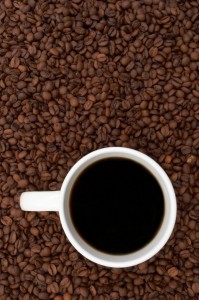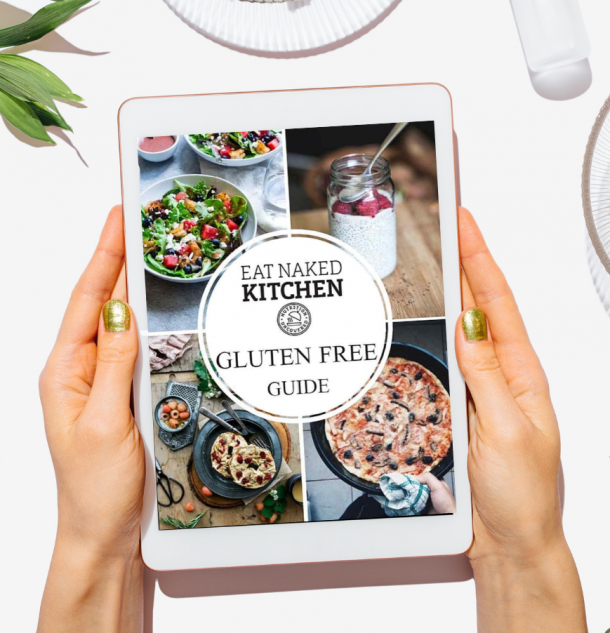Coffee is one of those topics in the nutrition community about which no one agrees. Friend or foe? There are good, solid arguments on both sides of that debate. As long as it’s consumed in moderation, it’s not one of the first things I address in working with clients. That said, there are ways to make its consumption much easier on the body, and my colleague Craig Fear has done a great job outlining some of these strategies. I love this post because I’ll confess that I have a soft spot for coffee as well. I’ve eliminated many things from my diet, and this is one that seems to keep popping back in. ~ Margaret
~~~~~~~~~~~~~
 On my intake forms one of the questions is, “Is there a food you are absolutely not willing to give up?” Chocolate, sweets and alcohol are just some of the obvious ones. But by far the most frequent item is…yeah, you guessed it…coffee.
On my intake forms one of the questions is, “Is there a food you are absolutely not willing to give up?” Chocolate, sweets and alcohol are just some of the obvious ones. But by far the most frequent item is…yeah, you guessed it…coffee.
I always encourage my clients to minimize too much coffee in their diet. I could go on and on about its negative health effects. But I’ll never tell anyone they have to give up coffee. If I did, the majority of the people I see would never come back!
However, it never ceases to amaze me when people do go off the stuff. When they come back for a follow up and say they’ve given up coffee and feel great, I always feel like saying, “Umm…could you show me how to do that?”
Perhaps this is not the best way to start my venture into nutritional blogging, admitting that I’m a coffee drinker.
So this blog is for you, my fellow coffee drinkers out there that scoff, smirk, sneer and roll your eyes at the seemingly endless barrage of how- to- quit -coffee articles out there and think, ”Yeah right”. Because I’m right there with ya.
And God knows I’ve tried to give up coffee. I’ve tried switching to tea and I’ve tried the coffee substitutes. None of it has worked. I even gave it up for 30 days once. It made no difference. Zippo. I craved it as much on day 1 as I did on day 30. I’ll never forget that first sip of coffee on the morning of day 31. I thought I’d died and gone to heaven.
If you truly love coffee and there’s absolutely NO WAY you’re ever going to give it up, here are 6 tips that can turn a really addictive habit into a mild vice:
1. Choose organic
Conventional coffee is heavily sprayed with pesticides. There’s a plethora of organic choices out there. At the very least, do this. Better yet, support companies that promote fair trade practices. And stay away from the flavored coffees which are usually full of artificial flavorings.
2. Get the sugar out!
OK, this I realize is a tough one for a lot of people. It was for me. Until I did this I never realized that what I was really craving in my coffee was the sugar more than the caffeine. And once I ditched the sugar, my palette became more attuned to the various types of roasts and regional variations. I actually started enjoying the taste of coffee instead of the taste of sugar. Try adding just cream (preferably raw if you can get it) in place of sugar. That helped me get the sugar out once and for all. The fat in cream will cut the bitterness of coffee. Cream also has a natural sweetness that can help you wean off the refined white stuff. Lastly, please do NOT use those flavored cream/creamer concoctions! They’re made with hydrogenated vegetable oils, corn syrup and a whole host of other chemicals. Now some of you might be saying, “Cream?! What about low fat milk? Isn’t that healthier?” No. As Bill Cosby once said, “Show me the cow who makes skim milk and then I’ll drink it”. Low fat milk and all manner of low fat products are not health foods. But that’s another blog topic for another blog day.
3. Buy whole beans and grind them at home.
Coffee beans, like anything, will begin to breakdown and become rancid once the inner contents are exposed to oxygen and moisture. To see this process with the naked eye cut open an apple and see what happens. The white flesh starts turning brown pretty fast. This is due to its exposure to oxygen and moisture, the enemies of freshness. They’re also the enemies of anti-oxidants, those things you hear about that create stability and health in living systems and ward off disease. I’m skeptical about the anti-oxidant health benefits you hear about in coffee. But if it’s true, those anti-oxidants will start to oxidize immediately after grinding, which is OK if you drink the coffee soon after. After a few days however freshly ground coffee doesn’t taste so fresh anymore. And if you get the sugar out, you can start to taste this pretty easily.
4. Keep it to ONE cup per day.
For starters, one cup is not a Starbucks twenty plus ounce mega -grande french vanilla frappuccino with whip cream and chocolate syrup. Nor does it resemble a giant caramel coffee coolatta from Dunkin Donuts. It’s eight ounces. Your liver can handle that. I know more than a few people who drink coffee all day long – five, ten, fifteen cups. If you’re one of those, don’t even think about cutting down to one cup right away. Reduce it slowly. If you’re drinking ten cups, get it down to eight in a week. Then get it down to five, and so on and so forth. Other strategies for reducing the caffeine content include a second brewing from the same beans and including half decaf (Swiss mater method only) in each cup.
5. Drink coffee after a meal.
It’s definitely better to wait until you have some food in your system before downing that cup of coffee. Caffeine causes your body to release sugar into your bloodstream which in turn causes the pancreas to release insulin (another good reason to get sugar out!). On an empty stomach this can cause a sharp drop in blood sugar which can then set up more sugar cravings. Guess what will help spike that sugar besides sugar? Caffeine. Furthermore, the caffeine in coffee can suppress your appetite causing you to go longer without feeling hungry. This sets up further episodes of low blood sugar and further coffee and sugar cravings. Having food in your stomach will help modulate this blood sugar response and keep those cravings at bay.
6. Enjoy the heck out of it!
Yeah, that’s right. We live in a world where we’re made to feel guilty about food: don’t eat this, don’t eat that, this food will kill you, that food will kill you. Of course, a lot of that is true, but you can take any food, create negative thoughts around it and actually make it unhealthier to consume with those stressful thoughts. After all, stress depletes nutrients from the body, too. So don’t feel guilty it, your one cup per day of organic, ground-at-home-with-cream-coffee. Enjoy it! I do every day.
Craig Fear, NTP, is the owner of Pioneer Valley Nutritional Therapy in Northampton, MA and blogs at Fearless Eating. He chose the Pioneer Valley as an ideal place for his practice for both the wide and varied access to local farms and for the strong support in the community for local agriculture. He loves to hike, play guitar, travel and of course, drink coffee. https://www.fearlesseating.net




I think this is good advice! I quit coffee 3 years ago and only just now started enjoying a cup on the weekends as a treat. I choose organic 75% decaf (the swiss water process kind) and I when I have it, I enjoy the heck out of it. I can’t drink caffeine it makes me get all racey and jittery. I do have to say getting it ground is my only option as I don’t have a grinder at the mo, so I put it in the freezer to preserve it and keep it from going rancid etc……
You could also consider Julia Ross’s The Mood Cure, supplementing amino acids to help rebuild depleted neurotransmitters. People who crave coffee and/or can’t function well without it are using the caffeine to artificially and detrimentally stimulate catecholamine, adrenaline, and noradrenaline production, over-taxing and exhausting the adrenal glands. If you’re able to provide adequate neurotransmitters then your addiction/craving will cease. You can check out CheeseSlave’s blog post about curing her coffee addiction here: http://www.cheeseslave.com/how-to-quit-coffee/ She has a few more posts about tweaking her own Mood Cure program and how she’s benefited. It was enough to convince me to try and in only a few days I’ve seen a huge decrease in my craving for chocolate and carbs. Never really had an issue with caffeinated coffee, made me too jittery, but I could totally relate with my own chocolate addiction. Now chocolate tastes nice but I don’t need it to get through the afternoon.
Great points, Rachel, and I agree wholeheartedly. I’m now actually a fan of decaf (swiss water process only) and my “need” for coffee is more of a liking of the taste rather than an addiction. Thanks for the additional links and reading!
Another option to make your coffee less unhealthy is to drink cold-brewed coffee. This way of processing decreases acids and caffeine and tasted fantastic – very smooth. The easiest way to accomplish this is with a “Toddy” system. You end up with a carafe of coffee concentrate – just add hot water at a ratio that suits your taste buds. I’d rather just give it up completely, but just enjoy it so much and have so few other vices.
Great tips Diane & Trina!
Something I’ve just been turned on to and am awaiting a local coming-soon resource, is something called Bulletproof Coffee. Supposedly the highest quality coffee, and people then add a rich, grass-fed butter to it. Sounds very intriguing and apparently something you won’t stray from once you start!
Another coffee tip that I’ve used is that I water down the coffee with hot water or just use fewer grounds when I’d brew it at home. My favorite part of the coffee is the cream, so the weekened coffee flavor was just fine for me, just don’t take away my cream!
I’ve been on the Paleo diet for two years now, and one of the things I noticed early on was that I no longer wanted or needed coffee in the middle of the day. One or two cups in the morning was all I needed. I started replacing that with lots of water. The bottled water habit was getting expensive too, until I replaced it with a permanent water filtration bottle called a Bobble.
Some great points here for both sides of the coin.
#5 – drink coffee after a meal – the interesting about this point, is that if you drink it RIGHT after a meal, and eat the right meal (i.e. a meal full of good fats) you are essentially mimicking a ‘bullet proof’ coffee – only this way is less faddy!
#4 keep it to one cup a day – this one is interesting too, as you mentioned; one mega-goliath starbucks cup is almost like having 4 standard cups (in my books). I stick to 3 standard sized (i.e. 200mg of caffeine, as far as I can tell) cups of clean, black pour over coffee!
Great read